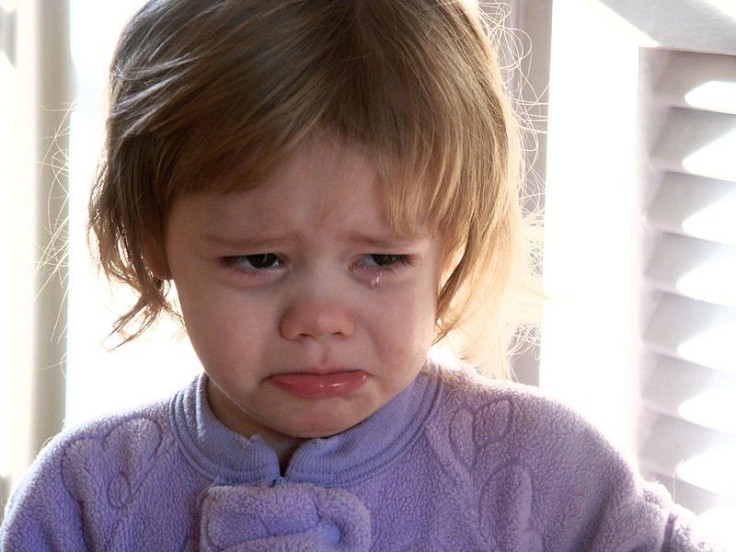Childhood Spanking May Lead To Adult Obesity And Other Diseases; Ways To Effectively Discipline A Child Without Spanking

The next time your child misbehaves, think twice about lifting your hand. Childhood spanking can put children at higher risk of suffering cardiovascular disease, arthritis, and adult obesity, according to a recent study. Researchers at the University of Manitoba in Winnepeg, Canada examined the association between physical punishment and physical health problems in children. The study compiled data from the National Epidemiological Survey on Alcohol and Related Conditions collected in 2004 — 34,226 participants, 20 years of age or older, were analyzed in this study. Researchers considered the participants who were physically punished as children as those who responded "sometimes or greater" to the question on how frequently they were spanked. In addition, the authors of the study also reviewed whether the participants were affected by eight physical conditions, such as cardiovascular disease, arthritis, and adult obesity. The findings of the study showed that harsh physical punishment was affiliated with adult obesity at 24 percent and arthritis at 35 percent, and the risk of cardiovascular disease was significant only after adjustment, said the authors.
"Kids need discipline," said Tracie Afifi, lead researcher of the study. "But it shouldn't involve physical force." While the results of the study do not affirm that physical punishment directly affects a child's health, they do show that it is a factor in the risk of the developing diseases later in life. According to the American Psychological Association, while Americans' acceptance of physical punishment has fallen since the 1960s, two-thirds of the country still approves of parents spanking their children.
Dr. Fran Walfish, child, couple, and family psychotherapist, shared with Medical Daily her chapter "Parenting in 3-D" — from her book The Self-Aware Parent — that offers alternate strategies for discipline that can build self-esteem in your child and give you — the parent — full control of their behavior. Walfish believes that having open communication with your child will help avoid issues, such as lying and drug and alcohol use later in life. "The child ultimately learns healthy expression of all feelings, including perceived negative emotions," said Walfish, regarding the achievement made after children feel that their parents "get" them.
With expert tips by Walfish's "Parenting in 3-D," it's time to learn the ways you can effectively discipline your child without spanking.
Think before you speak
A child will often act out of powerful feelings and may not want to listen to anything that you, the parent, has to say. While it is easy to retaliate and raise your voice to establish authority, it is best to first take a deep breath and think before you speak. "Acknowledge out loud that you see your child is angry. Say with warmth, sincerity, and empathy, "I see you are angry at me. I'm the kind of mom who really wants to hear about it right to my face. Tell me more about how mad you are at me," said Walfish. Establishing a calm and clear dialogue with your children will make them feel more at ease to open up to you and explain why they feel a particular way. The absence of screaming can do wonders for the communication between a parent and a child.
Verbally narrate your child's wants and feelings
When you as a parent acknowledge your children's feelings directly to them, they will be more prone to listen to you, Children want to be reassured that their parent understands them, especially when they can't always verbally express how they feel. Children tend to use their actions more so than words, so parents can understand the severity of the situation. "The key here is to say it with empathy so your child knows you feel for [him or] her," said Walfish.
Create a boundary
In order for your children to effectively listen to you when you delegate a task to them, it is advised to guide them toward their responsibility. Walfish uses the example of a child not wanting to take a bath. If a child refuses to bathe, walk him or her into the bathroom and help your child get into the tub. Gently pushing children toward their responsibility will assure that they listen. Steer away from feelings of anger; it won't help your child take a bath. "Do not give your child too much slack. The more slack in the rope, the harder it is to rein them in," she said.
Equip your child with coping skills
Parents often tell their children that if they achieve a task, then will get compensated for it. While this can often alleviate the struggle of getting your child to do something, it can also harm their psyche. Gadgets and gifts for their struggles can be done in moderation, but it is best to talk directly about the child's feelings and confront the situation. "Equip [him or] her with coping skills by allowing [him or] her to feel [his or] disappointments," said Walfish. The Beverly Hills psychotherapist believes that loving your child is only half of the job, and the other is establishing boundaries.
Published by Medicaldaily.com



























